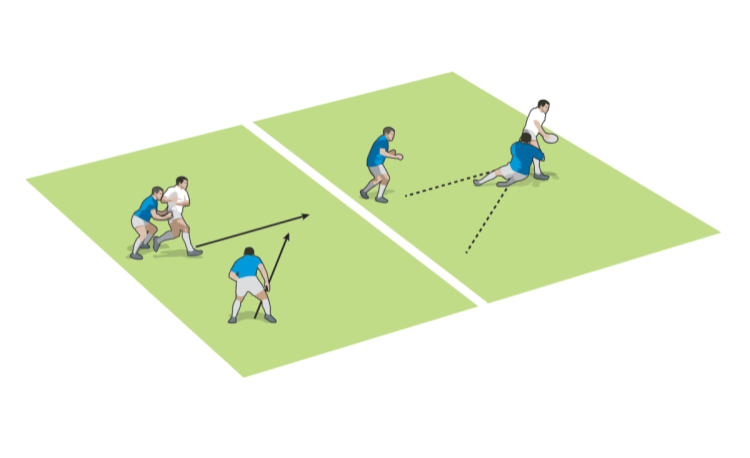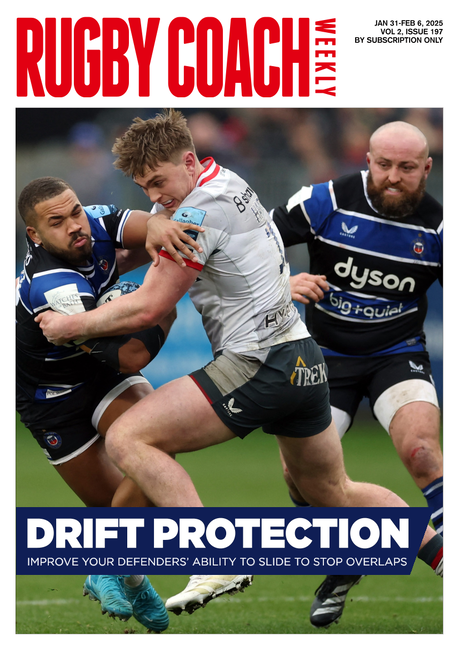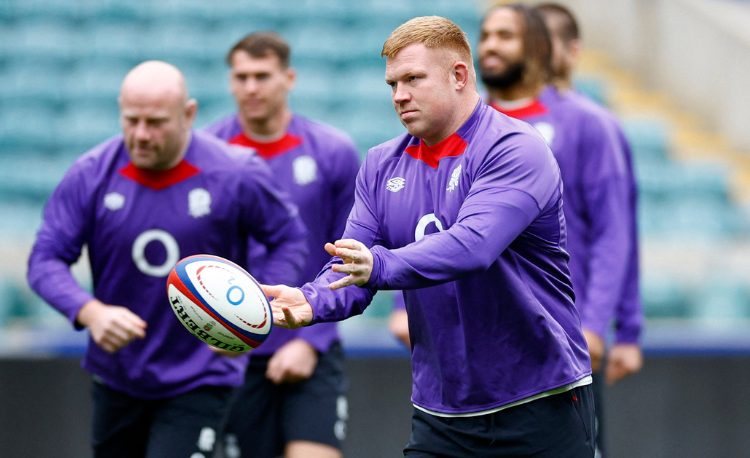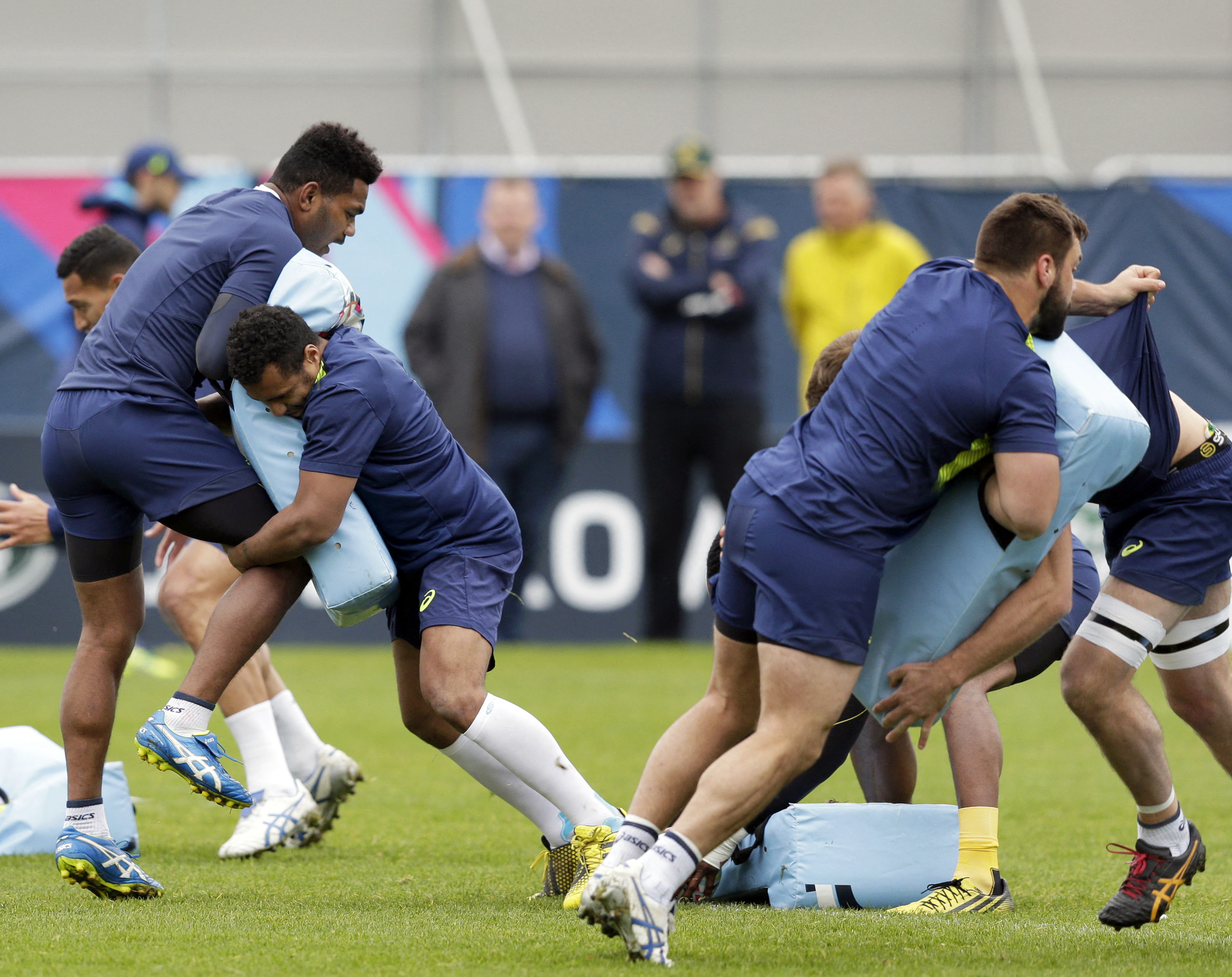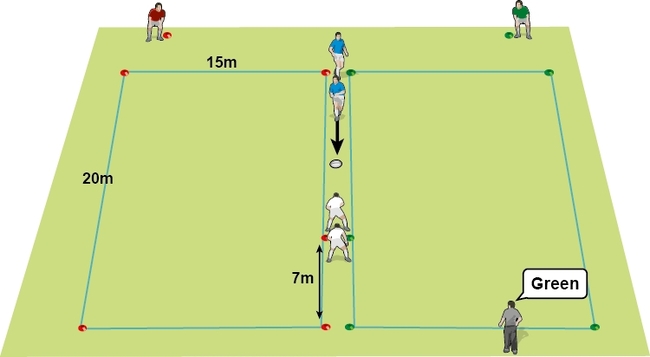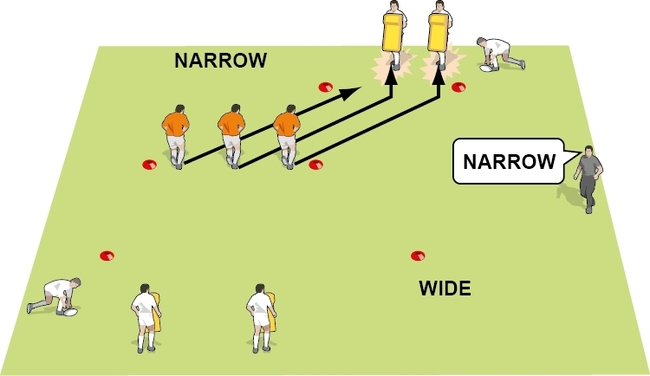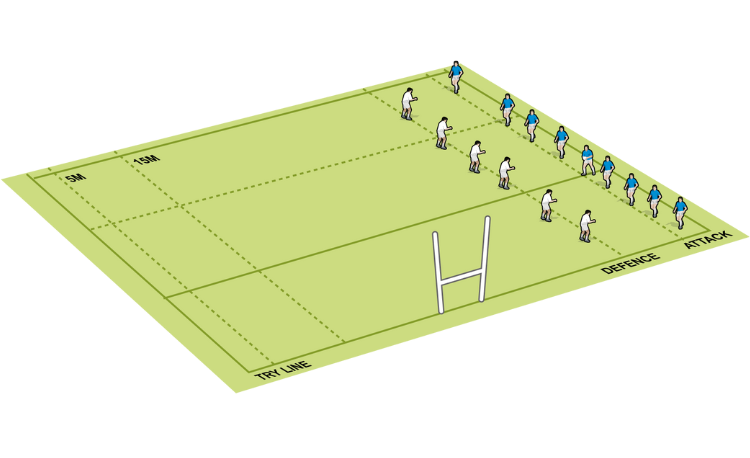Teach young players to tackle through games not drills
Learning to tackle for the first time is quite daunting for many players and their coaches. Here’s how you can make it easier and safe through games, not drills.
Tackling in rugby is dangerous if the player uses poor technique. It’s also dangerous for players who use good technique but don’t anticipate a change in direction by the ball carrier.
It’s the tackle which causes the most incidence of injury in rugby. Most of these injuries come from matches, not training. Yet, at the youngest age groups, where tackling is first learned, this form of contact very rarely leads to serious injuries (1).
Brave players get injured more
For young players, ironically, it’s the bravest players who will get themselves hurt. That’s because they are the ones most likely to be making tackles, and, because they are still learning the techniques, most likely to be in wrong position.
There’s also the additional group of players who have no sense of fear and will literally throw themselves into the tackle.
This needs careful consideration before designing a programme for learning to tackle.
Why games not drills
We know that players are more motivated to play games. They will seek better solutions for themselves to “win”.
This motivation can also help when introducing tackling. Here’s the trick though. You don’t tell the players there’s going to be tackling. Instead, “defence” will be a feature of winning.
Not drills? There’s nothing wrong with many tackling drills. However, as a way of introducing tackling and motivating players to want to learn to tackle, they don’t do enough.
We want players to want to tackle effectively. And, if they are tackling effectively, they are also tackling safely.
If that deals with the motivation to tackle, how about the players who already want to tackle. Here you must endeavour to design the games so good technique is rewarded.
Finally, to keep the games “safe”, you need to keep the speed of collisions low. Small starting distances and narrow pitches will make a big difference here.
TWO GAMES TO PLAY
1 Touch rugby (secret skill)
- Play normal touch rugby. It should be played inside a narrow box (15m wide) and with no more than 6-a-side.
- If the ball carrier is touched they have to pass the ball. There are endless touches.
- Once the players have played for a couple of minutes, add in a new rule. The ball carrier can be grabbed. If they are held for more than three seconds, and the ball hasn’t been passed, it’s a turnover.
- Always restart after a try or infringement, with a free pass and the defence no more than 5m away.
- Defenders can’t touch the ball.
- When you are ready, add in a new rule. If the ball carrier is brought to ground, it’s an immediate turnover.
Keys to this game
- Narrow pitch.
- Only increase the “contact” gradually. You could play just the “grab” in week one, and then “grab” to “tackle” in week two.
2 Ear touch
- Play normal touch rugby. You can use the same rules and pitch dimensions as above.
- Now, for a turnover, if the defender can get their ear into the shorts or side of the ball carrier it’s an immediate turnover.
- However, it has to be the correct ear. In other words, the right ear has to go into the right side of the ball carrier, and left ear into the left. Otherwise, say that there’s no tackle, or you could penalise the tackling team.
(1) Br J Sports Med 2004;38:168-172 doi:10.1136/bjsm.2002.003020 Injuries in youth amateur soccer and rugby players—comparison of incidence and characteristics A Junge, K Cheung, T Edwards, J Dvorak
Newsletter Sign Up
Coaches Testimonials

Gerald Kearney, Downtown Las Vegas Soccer Club

Paul Butler, Florida, USA

Rick Shields, Springboro, USA

Tony Green, Pierrefonds Titans, Quebec, Canada
Subscribe Today
Be a more effective, more successful rugby coach
In a recent survey 89% of subscribers said Rugby Coach Weekly makes them more confident, 91% said Rugby Coach Weekly makes them a more effective coach and 93% said Rugby Coach Weekly makes them more inspired.
Get Weekly Inspiration
All the latest techniques and approaches
Rugby Coach Weekly offers proven and easy to use rugby drills, coaching sessions, practice plans, small-sided games, warm-ups, training tips and advice.
We've been at the cutting edge of rugby coaching since we launched in 2005, creating resources for the grassroots youth coach, following best practice from around the world and insights from the professional game.

